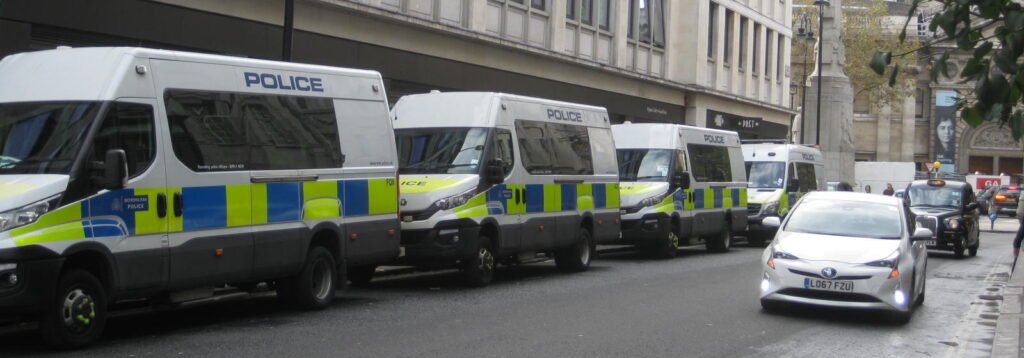Skilled Worker sponsor licence
To employ migrant workers on work permits in the UK, employers must first obtain an authorisation from the Home Office called ‘Sponsor licence’ and be on the Home Office Register of Licensed Sponsors: Workers. To get the sponsor licence, organisations need to apply to the Home Office by completing an online application form and submitting the required specified information and documents.
Types of sponsor licence
Skilled Worker sponsor licence is by far the most commonly used type of licence by UK employers. Other common sponsor licence category is the Intra Company Transfer (ICT), but the ICT licence can only be obtained by multinational companies to transfer staff to the UK from their offices in other countries.
If your organization/business meets the Home Office requirements for more than one licence category, you can apply for all of the licence categories that you qualify for at the same time in one application form. Multinational businesses usually apply for the Skilled Worker and Intra Company Transfer (ICT) licence in one application. This way they save time and money. Your organization may also decide to add a new licence category to the already existing licence at a later date, but you would need to make a further application and incur additional costs.
In addition to the Skilled Worker and ICT licence categories, there are also other types of sponsor licence and we explain those in more detail on this page. If you are unsure which type of sponsor licence your business requires, please check this page first.
Top tips for sponsor licence applications
Many of our top tips for sponsor licence applications are similar to what we also recommend for other immigration applications. We list our tips further below for your reference.
Sponsor licence applications require careful consideration of the rationale for the application and the reasons why a specific job role is required by your organisation. This is where an experienced immigration lawyer may be particularly useful. Experienced sponsor licence lawyers will guide you through the licence application process with confidence, to secure your licence the first time and within shortest possible time.
Points to note when preparing sponsor licence application:
- Pay attention to exactly what the Home Office requires.
- Have clear and logical rationale for the licence application and for the specific job you intend to employ a migrant worker(s).
- Provide everything the Home Office is asking for in their rules and guidance and not something else.
- Many applicants preparing applications on their own try to submit some different documents and/or fail to provide some mandatory information or documents, and unfortunately this normally leads to a refusal.
Organisation applying for sponsor licence licence must:
Organisations and businesses applying for sponsor licence may have different legal forms, for example can be a limited company, sole trader, partnership, overseas branch, unincorporated entity, charitable organisation, school etc.
Key requirements organisations have to meet when applying for sponsor licence:
- Already have trading presence and operate lawfully in the UK,
- have HR systems and procedures in place (we will guide you on this),
- be honest, dependable and reliable (e.g. have HMRC/tax, company affairs in good order and the office holders and Key Personnel must not have criminal offences and/or immigration offences on their record),
- have at least one employee or Director who is ‘settled’ in the UK to fill the Key Personnel roles (please see further below for more details)
- be able to offer skilled jobs at the NQF Level 3 or above (the job must be skilled to at least level 3 NQF) Immigration Rules Appendix Skilled Occupations – Immigration Rules – Guidance – GOV.UK (www.gov.uk)
- be able to pay the minimum salary required for the Skilled Worker visa (the minimum is normally not less than £26,200 gross per year but it may be higher or lower depending on the specific job and/or the specific migrant chosen for the role) More about minimum salary.
- the job(s) offered to migrants must be genuinelyrequired by the business (this usually means the business needs those jobs and the jobs ae not created just to facilitate migrant’s entry to the UK). It is easier to obtain sponsor licence when the job is listed on shortage occupation list.
Key Personnel for sponsor licence
Organisation applying for a sponsor licence needs to appoint three key positions for the licence. One person can fill all three positions. The most important position is the Authorising Officer as this will be the person with overall responsibility for immigration compliance and if there is any Home Office visit, they will ask to speak to the Authorising Officer. The individuals who fill the key personnel roles need to be resident in the UK and do not have criminal offences or immigration offences on their record. Each organisation must also have at least one Level 1 user who is considered in the immigration rules as ‘Settled’ in the UK.
- Authorising Officer – has overall responsibility for the immigration compliance and if the Home Office visits your organisation they will speak with the Authorising Officer
- Key Contact – the Home Office may contact them instead of the Authorising Officer with some updates
- Level 1 user – will have access to your online Sponsor Management System (SMS) account and will issue the Certificates of Sponsorship (COS)
Call us about any immigration matter on your mobile or dial +4402034889710.

Sponsor licence Application process
Sponsor licence application is submitted online via gov.uk website. There is an application fee of £536 for small sponsors and charities and £1,476 for larger sponsors. Your organisation normally qualifies as a small sponsor if you fall under the ‘small company’ regime as defined in the UK Companies Act Companies Act 2006 (legislation.gov.uk).
To find out more about the fees for Sponsor Licence visit our fees calculator for sposnor licence page.
After making the payment, there is a 3-page Submission Sheet document generated automatically. Your Authorising Officer (see above the ‘key personnel’) must sign and date it, and email it to the Home Office together with all your other supporting documents within 5 working day from the online submission. The relevant required documents depend on the type of business and the duration your organisation is trading. Some of the documents can be mandatory, for example if your organisation is regulated by the Financial Conduct Authority (FCA) or Care Quality Commission, you would have to provide evidence of the registration and/or regulator’s report.
Similarly, if your organisation is an education institution and is supervised by Ofsted, you would need to provide evidence of your registration and most recent report. In the same way, if your organisation is a Charity, you would need to provide evidence of your registration.
Examples of supporting documents for sponsor licence:
- business bank statement,
- Employer’s Liability Insurance certificate,
- VAT registration certificate,
- HMRC payroll registration,
- Lease/licence agreement for business premises
- Evidence of registration with regulatory body (if required to legally trade in the UK)
- Evidence of registration with Food Authority (if food business)
- Answers to the set of Home Office questions listed in their documents guidance Sponsor guidance appendix A: supporting documents for sponsor applications – GOV.UK (www.gov.uk)

Sponsor licence application processing time
The Home Office processing time for sponsor licence applications is normally between 7 to 9 weeks but it may take longer if the Home Office requires more time to assess your application, or if they decide to visit/audit the sponsor’s business before decision is made. Home Office unfortunately never guarantees their timelines, although normally they try to provide decisions within their standard processing times. There is an expedited processing service available for an extra Home Office fee of £500, when processing time is stipulated as 10 working days from receipt of the payment and all the supporting documents. However, only 10 applications are accepted per day on the first come firsts served basis.
The initial licence is granted for 4 years and can be extended for further 4 years periods. The extension must be submitted prior to current licence expiry, which is very important to remember as if you miss the deadline you would need to apply for the licence again repeating the initial application process.
Home Office visit (audit) before licence
Prior to making their decision on a sponsor licence application or at any time during the period of the sponsor licence validity, the Home Office officers may come to visit the sponsor to conduct an audit. The purpose of this visit is to assess if an organisation is able to comply with the sponsorship duties (pre-licence) or whether it complied with the sponsorship duties (post-licence audit).
During their visit the Home Office will speak to your Authorising Officer and review the sponsor’s relevant HR procedures and records. They may also speak to Skilled Worker migrants to establish if their job duties are in fact in line with the information recorded on their work permits issued to them. Most common issues during the visit are lack of HR processes and procedures, Authorising Officer not having the knowledge of sponsorship duties and obligations, the job role is not found to be genuine.
Depending on the result of the visit, the Home Office may grant or refuse a sponsor licence application OR suspend or revoke an already existing licence.
Compliance with sponsorship duties and obligations
It is crucial that sponsor employers understand and comply with the sponsorship duties and obligations. Depending on the result of the visit, licence application can be refused or granted. For licence holders it can result in suspension or revocation of the licence.
Call us about any immigration matter on your mobile or dial +4402034889710.

After licence is granted – guidance
We find that after the sponsor licence is granted, many sponsor employers not always pay enough attention to their sponsor duties. For example sponsor employers:
- fail to update the Home Office when the job of their migrant worker changes;
- fail to update the Home Office of changes to their organisation, e.g. when their office address changes or if their ownership and/or corporate structure changes.
Points to note:
- It is important to pay attention to the changes and consider any implications for the migrant and your organisation before making those changes.
- To illustrate the above point, if your migrant worker is promoted and his/her job changes so significantly that their new one is under a different Soc Code (Soc Codes are job types listed by the Home Office) the migrant needs to apply for a new Skilled Worker visa before starting the new job. Another example is when sponsor licence holder organisation changes its ownership, the licence is normally lost and the organisation needs to apply for a new licence.

